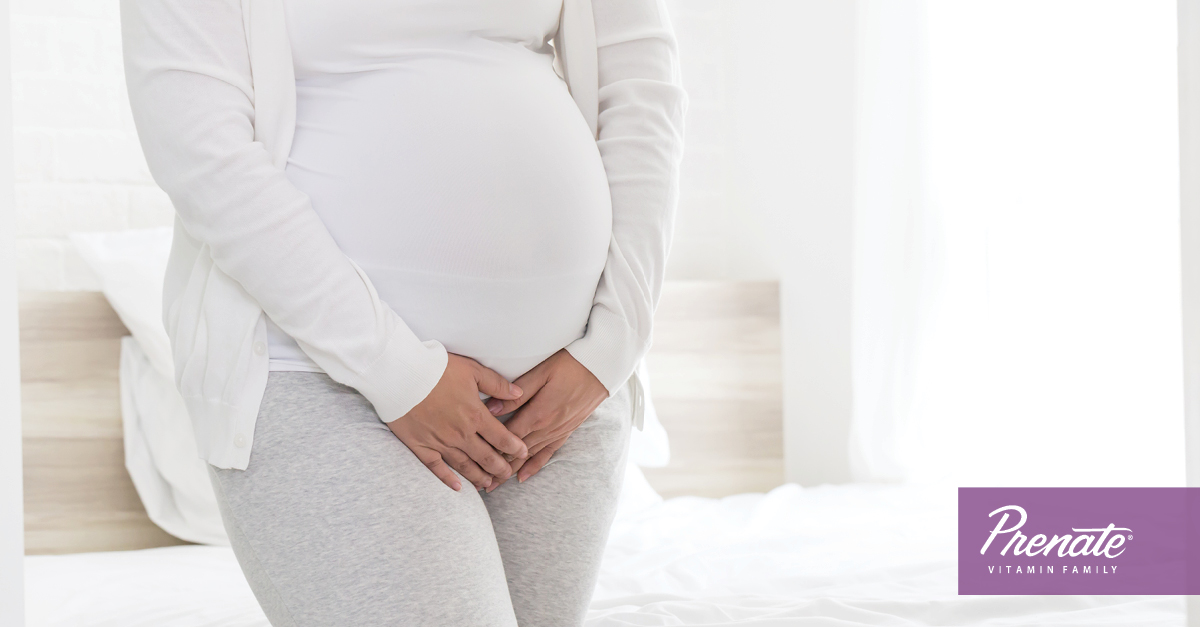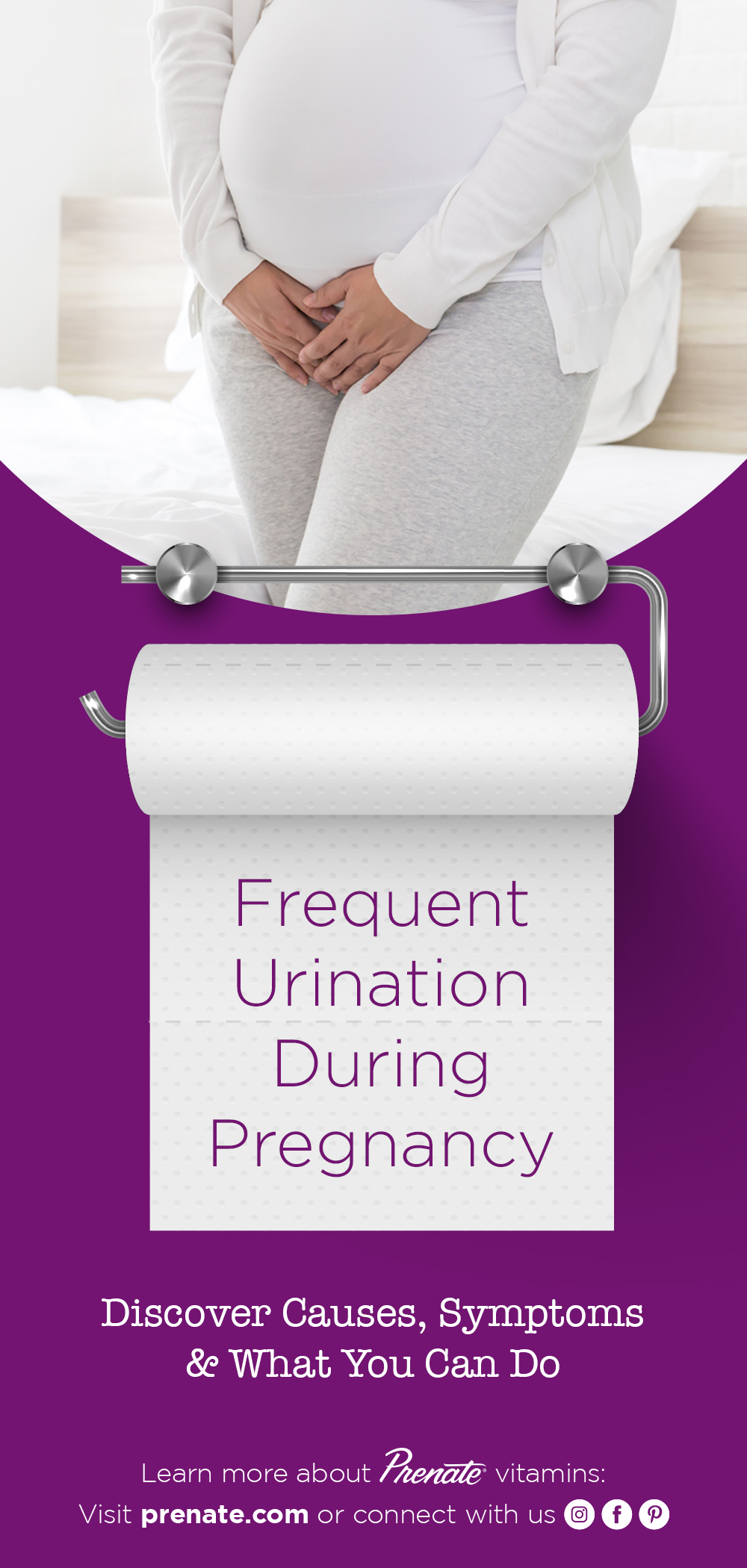Frequent Urination During Pregnancy and What You Can Do About It
December 28, 2021
Are you pregnant and finding yourself getting familiar with the inside of the ladies’ room? Frequent urination is common during pregnancy, especially for first-time moms. Learn more about the causes of frequent urination and what you can do to manage it.Causes of Frequent Urination During Pregnancy
Thanks to the increased levels of the pregnancy hormone HCG and progesterone, the blood flow to your kidneys increases during pregnancy, causing you to visit the bathroom more frequently. While you might start seeing this common symptom as early as the first couple of weeks after conception, most women experience the urgency to urinate starting at week 10. That’s when the uterus begins putting pressure on the bladder.1
Symptoms of Frequent Urination
Frequent urination can be one of the first signs of pregnancy, and the urgency can increase during the first trimester. In addition to the frequency, leakage – also called stress urinary incontinence (SUI) – can occur during certain events, including2:
- sneezing
- coughing
- laughing
- exercising
- lifting
- walking
How to Manage Frequent Urination
Want to gain control over your frequent flow? Here are some suggestions.
Practice Kegel exercises. These exercises can strengthen the muscles of the pelvis and urethra and support the bladder. Kegel exercises are performed by first relaxing the abdomen, chest, thighs, and bottom. Next, contract the pelvic floor and hold for 5 seconds to 10 seconds. Relax the muscles for 5 to 10 seconds, then repeat the exercises 10 times.
Empty your bladder completely. Each time you go to the bathroom, lean forward as you urinate.
Cut back on fluids before bed. This will keep you from getting up in the middle of the night.
Avoid caffeine. Caffeine is a diuretic, and it will cause you to have to urinate more frequently.
While it may be tempting to skimp on fluids during the day to help reduce trips to the bathroom, don’t! Staying hydrated during pregnancy is extremely important. You should drink eight to 12 cups of water a day.3
Prenate® Vitamin Family
This post is brought to you by the Prenate® Vitamin Family, a line of prescription prenatal supplements designed to enhance preconception, prenatal, and postpartum nutrition in women. Talk with your doctor about how taking a daily prescription prenatal or postnatal vitamin could help support a healthy pregnancy and postpartum wellness.










